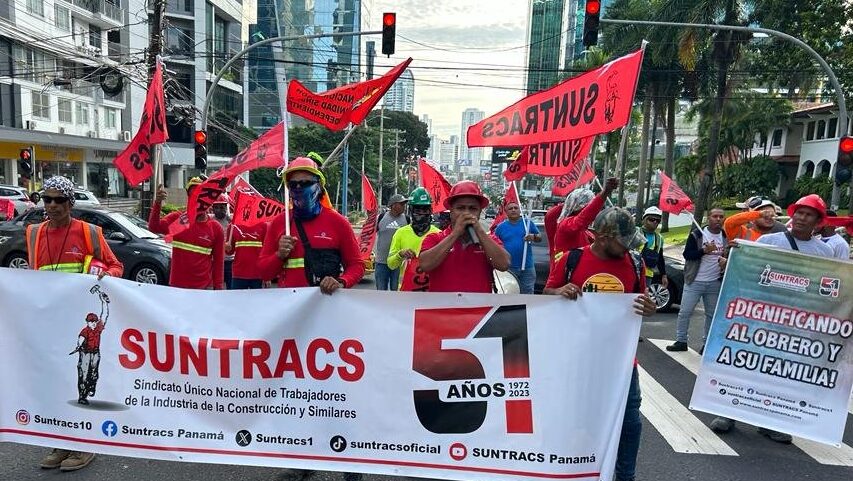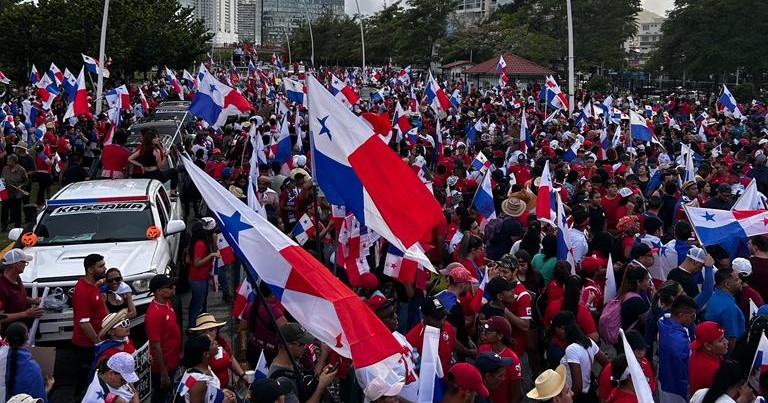More than a month of mass protests, blockades, and strikes have forced the Panamanian Government to begin shutting down the Cobre Panamá mine. The copper mine—by far the largest in Central America—was operated by Minerá Panamá, a subsidiary of Vancouver-based multinational First Quantum Minerals. The decision is being celebrated as a victory for the sovereignty, environment, and indigenous peoples of the small country, and key elements of the movement are committed to holding their ground until the closure is seen through.
The now-overruled Law 406, passed by the Panamanian Congress on October 20th, was set to extend the operation of Cobre Panama by 20 years and grant the project access to an additional 40 square kilometers of rainforest for it's expansion. Protesters were already outside the Congress on the 20th, but the movement exploded over the past 6 weeks to include trade unions, indigenous communities, and in total over 250,000 of the country's 4.4 million residents.
Within days of the law passing, Panama's National Union of Workers of Construction and Similar Industries (SUNTRACS) called upon popular forces and trade unions to mobilize and demand the cancellation of the contract. Unions of teachers, electrical workers, doctors and dentists were quick to strike upon receiving the call.
Highways across the country have been consistently and thoroughly shut down by demonstrators, and a port crucial to the operation of Cobre Panama has been blocked by the boats of local fisherman. The mine has been "undergoing maintenance" since November 23rd as the blockades caused it to run out of the coal it relies on for power.
General Secretary of SUNTRACS, Saúl Méndez, stated: “The people are in the streets in defense of sovereignty… in the face of a contract that cedes self-determination by devastating the environment in order to steal resources.” On Twitter, he declared that it was a "victory of the people. Nothing more to say."

Panamanians are all too familiar with foreign control of their resources. The Panama canal was famously controlled by the U.S. for almost 80 years before the American "Canal Zone" enclave was abolished in 1979 due to popular discontent.
Despite the new contract with Minerá Panamá offering the country 10x the share of profits than the previous, and President Laurentino Cortizo's attempt to subdue the unrest by promising a 75% increase in minimum pension payments; the protestors refused to be bought off.
The mine is located within the Donoso protected area, a rainforest recognized internationally as a Key Biodiversity Area with dozens of unique species, and many threatened with extinction. First Quantum had already disregarded numerous environmental regulations, dumping waste water and clear cutting areas in search of minerals. With the contract granting an additional 40 square kilometers to Minerá Panamá, this was certainly a sticking point for those protesting.
Since the initiation of the closure of Cobre Panamá, the fishermen blocking the port have made it clear they plan to see the closure through. "If this goes on for a year, we will stay a year, there is no end-date," said representative Sabino Ayarza. SUNTRACS remains in the streets as well, standing in solidarity with the fishermen as well as seeking justice for teachers killed while blocking roads.
- Ukraine: Russia and NATO both to blame?
- Canada’s Mining Investments Linked to Human Rights Abuses in Philippines
- Canadian Arms Industry Convention Contradicts the Country’s Peaceful Image
- How Canadian Arms Exports are Fueling Conflicts and Endangering Civilians
- Trudeau Disregards Clear Evidence of Mining Giants’ Abuse of Local Communities
- National strikes force Canadian mine closure in Panama
- Are Canadian policies really helping the Ukrainian people?
- “It affects everything in the area”
- Canadian Government supports human rights abuses in Peru
- Protesters Disrupt World’s Largest Mining Convention in Toronto


